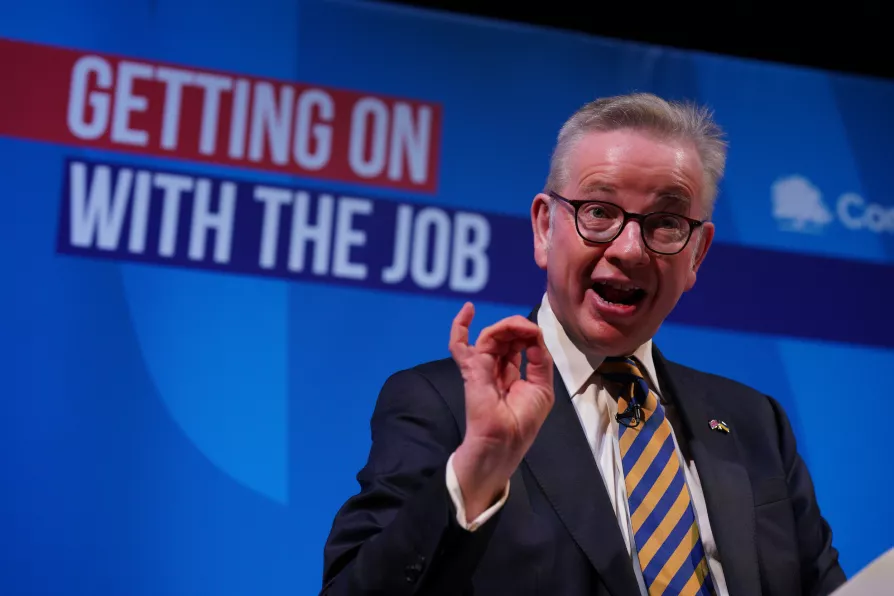The end of ‘levelling up’ suggests the Tories, like Labour, cannot abandon a dying neoliberal model that the public rejects

 Secretary of State for Levelling Up, Housing and Communities Minister for Intergovernmental Relations Michael Gove during the Conservative Party Spring Forum at Winter Gardens, Blackpool. Picture date: Friday March 18, 2022.
Secretary of State for Levelling Up, Housing and Communities Minister for Intergovernmental Relations Michael Gove during the Conservative Party Spring Forum at Winter Gardens, Blackpool. Picture date: Friday March 18, 2022.
LISA NANDY rightly observes that the Tories have “abandoned” levelling up — the promised targeted investment that would address Britain’s yawning regional inequalities.
Conservative rivals compete to pledge the most extreme form of Thatcherism, demanding corporation tax cuts and yet more deregulation.
We are so used to Tories saying one thing and doing the opposite that the significance of this may be lost on the left.
More from this author

Ben Chacko asks NIZAR TRABULSI of the now banned Syrian Communist Party (Unified) to explain the country's turbulent, and violent, post-Assad scene

From renewable tech to alternatives to the dollar, BEN CHACKO was encouraged by an optimistic meeting held by the China Media Group this week














